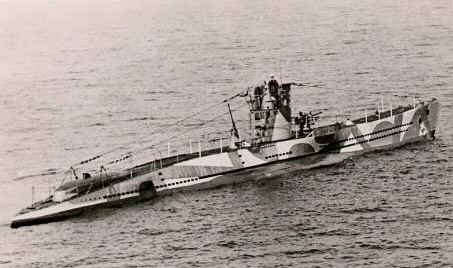
The Greenock Telegraph reported on January 21, 2014 the story of the relatives of a U-Boat gunner direct their anger toward an Inverclyde historian’s dismissal of how the u-boat was sunk in the River Clyde during the war.
Author Nigel Graddon had recently announced he had obtained new evidence that the vessel, U-33, was able to make it through the Cloch boom defense netting between the Gourock and Dunoon in February 1940.
He cites the testimony from family members of one of the survivors, but this was rejected last week by Alastair Alexander, who described the testimony as ‘hearsay’.
Alexander wrote a book about warfare that utilized u-boats on the Clyde. He has said that the official National Archive documents proved the boom was not breached and the U-33 was sunk off Arran.
Now, Graddon says that the Canada-based family of survivor Hans-Joachim Ehrhardt are outraged by the claims Alexander is making.
Graddon told the Telegraph: “I have been asked by the Ehrhardt family to summarise their position to the Greenock Telegraph regarding Alexander’s remarks. To say they are unhappy is an understatement.
“Alexander’s remarks concerning the facts put forward from Hans-Joachim Ehrhardt about U-33’s last hours are regarded as deeply offensive by his family.
“Sons Frank and Klaus Ehrhardt reiterate and insist that their father stood one hundred per cent behind what he wrote in his journals. They remember their father as an honest, truthful and clear-minded man.
“When he did finally share the facts to his nearest, he recounted them as if they had taken place only the day before; the details were so fresh in his memory. He revealed them as unvarnished facts and not as fairy stories.
“Gunner Ehrhardt was on board U-33 on the night of the battle. Alexander was not.”
Graddon does not believe the official records that Alexander believe to be true, can be trusted.
He has gone on to say: No amount of scrutiny of archive and official records can possibly take the place of eyewitness testimony from one who participated in an historical episode.
“The family is certain that, if official records contradict their father’s personal testimony, it is because they were written to conceal truths unpalatable to the authorities.
“The fact that British records deny the presence of a U-boat in the harbor on that or on any other night in the war is evidence of saving face. Naval officials were duty bound to convey the impression that the nets in the area were impenetrable so not to cause any panic.”
Alexander also angered the family of the late Mr. Ehrhardt by casting doubt on the account he offered about his rescue by Seaman P. Green. He insisted that he was, in fact, the serviceman who interrogated him.
Graddon said: “The family adamantly stick to their guns regarding Seaman P. Green, of whom their father spoke most highly.
“Their father truly remembered him as the man who rescued him from the Clyde.
“As far as the family is concerned, Green may well have taken part in Ehrhardt’s interrogation after the rescue, but they maintain categorically that he was the man who pulled their father from the water.
“The family is convinced of this and is deeply unhappy that the story should be dismissed out of hand by one who is not in any position to know. Klaus and Frank only hope that Seaman Green survived the war and passed on his recollections of that fateful night to his children, as their father did with them.”